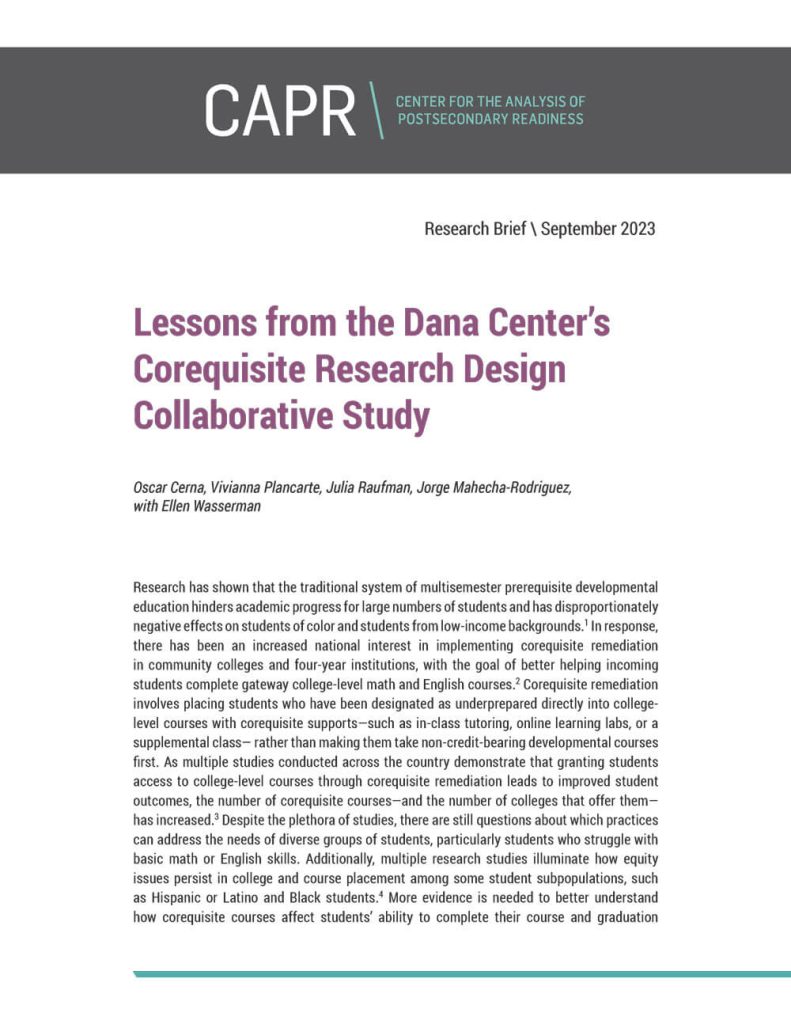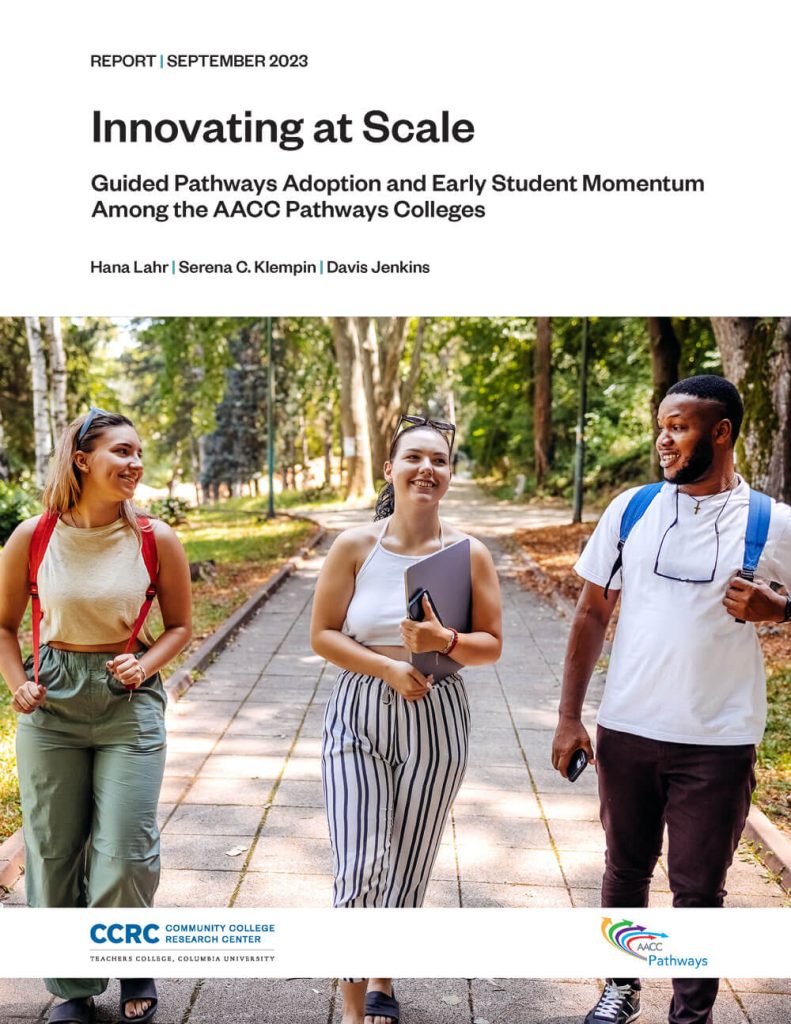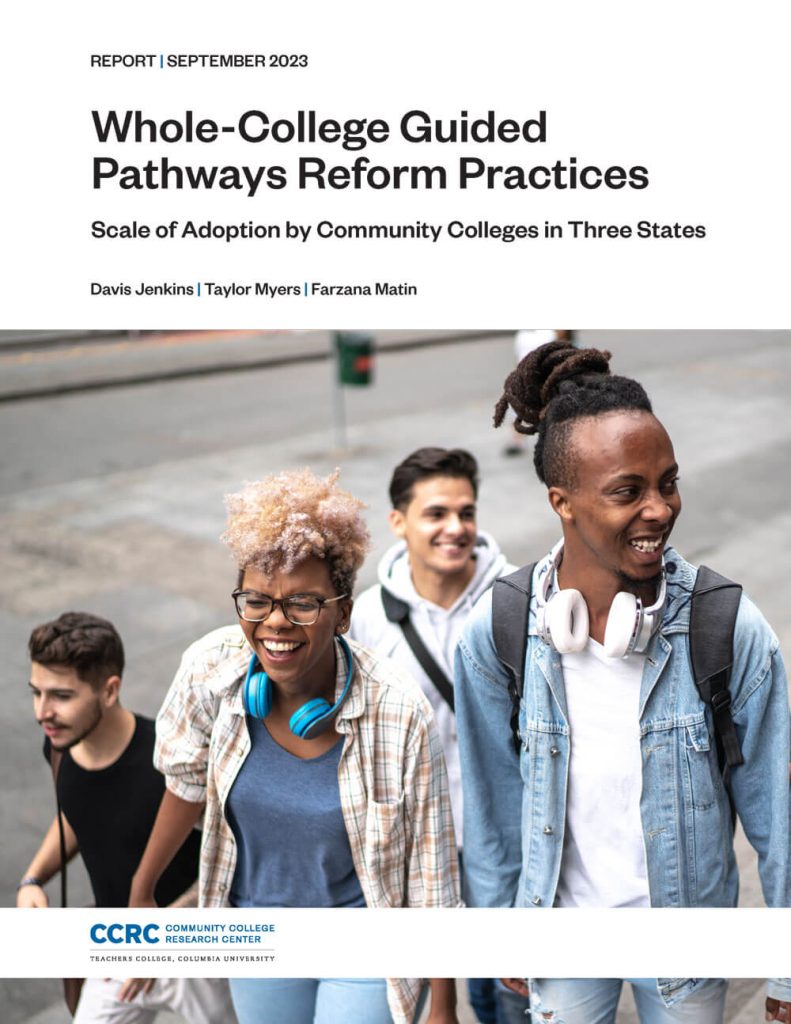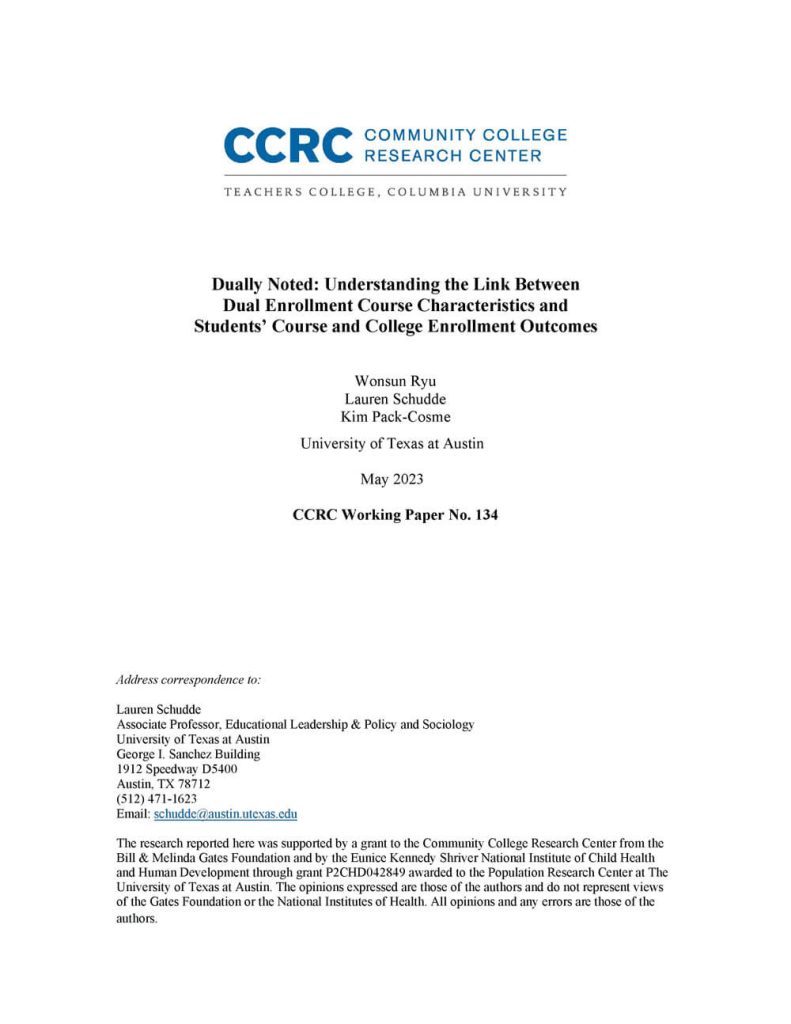Lessons from the Dana Center’s Corequisite Research Design Collaborative Study

Based on interview, focus group, observational, and student survey data, this CAPR brief presents findings on the design and implementation of corequisite developmental courses at four colleges, and it highlights lessons for other colleges.
Innovating at Scale: Guided Pathways Adoption and Early Student Momentum Among the AACC Pathways Colleges

Drawing on interviews as well as self-assessment and performance data, this report discusses what the AACC Pathways colleges have accomplished in their guided pathways reforms over the past seven years and what they have learned about institutional transformation.
Whole-College Guided Pathways Reform Practices: Scale of Adoption by Community Colleges in Three States

Based on institutional survey data, this report presents findings from a study on the scale of adoption of guided pathways practices at community and technical colleges in Ohio, Tennessee, and Washington State.
Implementing Caring Campus: Strategies College Presidents Use to Improve Culture and Support Reform

Based on interview data, this report examines a set of seven strategies that presidents of community colleges implementing Caring Campus are using to develop a more positive college culture and to support this culture-focused reform.
Dually Noted: Understanding the Link Between Dual Enrollment Course Characteristics and Students’ Course and College Enrollment Outcomes

Using data from Texas, this paper describes dual enrollment course characteristics such as instructor affiliation, location, and modality and examines how these characteristics predict students’ course completion, course grades, and subsequent college enrollment.
